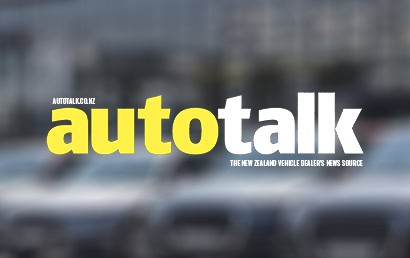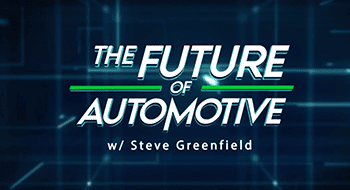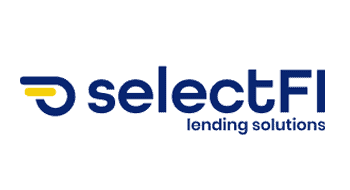The Rise and Risk of Artificial Intelligence in Dealerships

Michael Clarke has a wealth of experience in the Australian automotive industry, including a well regarded stint at Cox Automotive. Today he is leading local efforts for Impel Ai, a US-based dealer services company heavily leaning into Ai tools. In this think piece he discusses more about what the technology can do for the trade.
INTRODUCTION TO AI: Having spent three days at the Impel stand during NADA, presenting AI solutions non-stop to dealers keen to understand this new technology, it became apparent that there was much talk about AI but little detail. The term “AI” was the most discussed topic inside the NADA halls, yet dealers from various geographies were confused about defining the line between hype and value. I have been asked by AutoTalk to help bring some much needed clarity to dealers about what AI is, how it can work, where it is going, and what to expect. As a service provider that has been dedicated to AI since 2018, I welcomed the opportunity to share our perspective, not just on the hype, but also on the risks associated with leveraging the massive value within.

Artificial Intelligence or AI, as it is now known, is now a household name, exploding onto the scene in late 2022 with the launch of OpenAI’s ChatGPT. Such a phenomenon it was that it catapulted to one million users in a week, and a hundred million users in a couple of months, the fastest adopted technology in history. The interest wasn’t limited to consumers, with businesses scrambling to understand this latest evolution so they could leverage the potential efficiency packed with. Equally, the interest was flooded by opportunists looking to bring solutions to a business community eager to understand and access this technology – but without expertise in the field, industry, and risks.
AI is not the overnight success that it seems, in fact, the idea of AI first appeared in 1955 with the Logic Theorist and has gone through countless iterations over the proceeding 67 years before OpenAI democratised the technology under their Large Language Model (LLM). Large language models (LLMs) are AI systems trained on vast amounts of text to predict and generate human-like language. They excel in tasks like conversation simulation, content creation, and language translation by understanding context and grammar. Their effectiveness increases with more data and larger model sizes. Understanding this explanation is where any business looking to adopt this technology should be looking before signing on with any potential partner. The value of AI is significant, but so can be the risks if it is not applied with due consideration.
CHOOSING THE RIGHT AI PARTNER FOR AUTOMOTIVE SUCCESS
When selecting an AI partner, automotive companies should prioritise proven expertise and a strong track record in AI technologies specific to the automotive industry. Key attributes include scalability of solutions, robust research and development capabilities, and a deep understanding of automotive processes, challenges, and opportunities. These attributes are limited to very few automotive providers in the market generally, let alone in a sector where the technology is so nascent. These factors are critical to expose not just an ROI but ensure an engaging and sustainable customer experience. Be sure that any provider is offering genuine AI services, leveraging the latest in LLM technology and creating system flexibility to work within the goals and even brand guidelines of your organisation. There are still a number of providers in the market presenting themselves as an AI solution but in reality, it is just an automated workflow with no ability to communicate intelligently and specifically with the consumer 24/7.
REALISTIC EXPECTATIONS YOU CAN HAVE FROM AI TODAY
The adoption of AI in the automotive sector significantly enhances both performance and operational efficiency. AI’s ability to automate customer interactions and backend processes reduces the need for extensive human capital, thus lowering labour costs and enhancing service quality. AI allows dealerships to handle a higher volume of customer interactions and manage operational tasks with fewer staff members, effectively increasing productivity and reducing overhead costs. Specific performance improvements noted in the industry include increases in lead conversion rates, vehicle sales, service appointments, and customer retention rates due to AI integration. Dealerships have reported impressive gains from AI implementations. We typically see dealerships report a 30-50% increase in leads converted to showroom appointments after implementing AI to engage and follow up with inbound internet sales leads. For one dealer, this represented a 56x ROI ON THEIR AI INVESTMENT.
Another dealer group utilising our AI-powered service communications proactively reached out to past customers, generating nearly 3,200 repair orders worth $1.1 million in just three months. These examples underline the direct financial benefits of deploying AI within automotive operations but don’t take into account the unquantifiable potential available by tapping into the increasing productivity that underpins the work that AI does and enabling dealers to operationalise more each and every day.
IS YOUR BUSINESS READY FOR AI – PROCEED OR PAUSE
I have heard language in the market about the “new normal,” but this is a massive misrepresentation of the current market and the subsequent opportunities. Most dealers will acknowledge that inventory is returning to pre-pandemic volumes, costs are climbing, and the “art of sales” has been lost from many showroom floors. To combat this, many are reaching out to access training solutions or implementing strict cost controls, neither of which address the real issue, and in some ways contradict each other. While investing in the training of one of your biggest cost centres, people, makes sense, it still misses two of the key issues of today’s market. Firstly, consumers now demand higher levels of engagement from dealerships, wanting more information how, and when, they want to consume it. No amount of training can deliver on these expectations with 40% of them now initiating their interest outside of traditional business hours. Secondly, there are only so many hours in the day, and how does even the most trained and capable team member spend their time only following up the most qualified of customers, spending their day efficiently on revenue generating activities, rather than low value, repetitive and unqualified tasks? AI doesn’t specifically generate revenue, it enables you to do it more efficiently, effectively, to do more with less. Converting more leads into vehicle sales, driving more service appointments, and turning more customers into repeat purchasers… all while maintaining, or reducing, headcount. While that’s historically been easier said than done, market leading AI applications are helping dealers do just that. To pause on AI will only lead to extended compression on net profit, and perpetuating inefficient operational processes that have existed largely unchanged for decades. There has never been a better time for dealers to embrace AI-powered automation to increase productivity – providing them with greater leverage to maintain profitability in an everchanging market.
SO WHAT’S NEXT FOR AI
Leading AI technologies have invested heavily in modelling “scaling laws” that predict the exponential growth AI will encounter as more computation power and more data are added to the model; in other words, the more investment made. They are suggesting we are at the bottom of the growth curve and we are about to see AI exponentially explode in regards to capability and functionality. Inevitably, AI will move deeper into automation and extend into decisioning and persuasion, which creates as much excitement as concern across both business and consumer communities equally. The focus continues to be around the safeguards and controls that can be put in place to ensure business goals continue to be met but with the consumers’ needs being at the centre to ensure that goodwill is extended across this omnichannel engagement. One of the leading voices in AI, Dario Amodei – CEO and Founder of Anthropic, put it best when he said that “the more open ended the thing is, the more powerful it is, but also the more dangerous it is and the harder it is to control.” Creating a solution that is “safe and controllable” is a shared responsibility for all stakeholders in this evolving technology. Don’t delay, jump on the AI advocacy bandwagon, but choose who you do it with cautiously.




